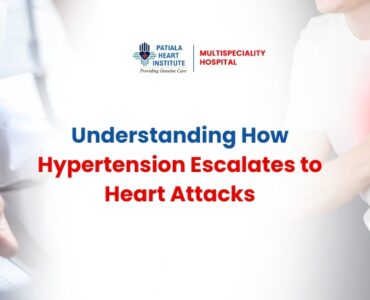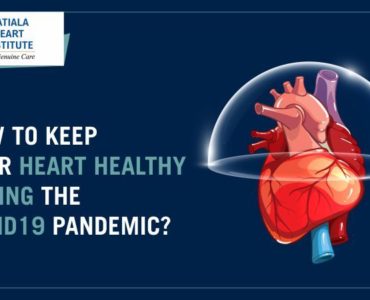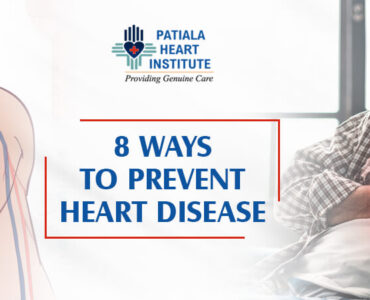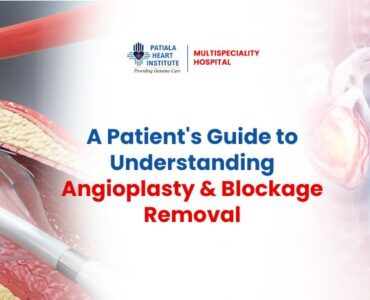Overpower an Upcoming Heart Attack before it Overpowers you.
If you feel you might be having a heart attack, it’s crucial to seek help immediately. This condition can prove fatal. However, you can turn the tables by acting wisely and smartly.
The first hour after the onset of a heart attack is called the golden hour during a Heart attack. However, taking necessary action within the first 60 minutes can reverse its effects.
A heart attack is a condition that occurs when the blood flow that carries oxygen to the heart is blocked. As a result, the heart muscles get deprived of oxygen and start dying. You feel a tight band of pain around your chest. What does this pain signify? It could be a heart attack or even a bigger condition.
This life-threatening emergency requires quick action. Any delay can put your whole life at risk. The average person waits for three hours before seeking help for symptoms of a heart attack.
Every person experiences a heart attack differently. Moreover, not every chest pain indicates a heart attack. People may often misconstrue the two terms: a heart attack or a sudden cardiac arrest. However, a heart attack is not the same as a cardiac arrest.
Difference Between a Heart Attack and a Sudden Cardiac Arrest
During a heart attack, one of your coronary arteries becomes blocked. A cardiac arrest occurs when a person’s heart stops pumping blood around the body and stops breathing normally.
While a heart attack is a problem with blood circulation, a cardiac arrest is considered an electrical problem triggered by a disruption of heart rhythms. A heart attack may not lead to a cardiac arrest. However, when cardiac arrest happens, a heart attack is a common cause.
Spotting a Heart Attack
When no one is around you, it is important to act wisely and smartly. For example, the first step in treating a heart attack is to recognize the early symptoms.
Not all heart attack symptoms begin with sudden and crushing chest pain. Some heart attacks may even cause no symptoms. Instead, they may start slowly or with mild discomfort. Moreover, the severity of these symptoms depends on your age, gender, and medical conditions.
Common Symptoms May Include
- Chest discomfort that feels like a squeezing or throbbing pain
- Pain and discomfort that goes beyond your chest to other parts of the body
- Unexplained shortness of breath
- Nausea, vomiting, or cold sweats
However, these symptoms may vary between men and women. Women are more likely to have additional neck, shoulder, abdominal pain, or upper back pain. Recognizing these warning signs is essential to start timely treatment.
Emergency Treatment in Case of Heart Attack
Call your Emergency Service Provider [ EMS]
Immediately call your Emergency Service Provider [EMS] if you or someone in your family experiences chest pain or other heart attack symptoms. It’s better to call for an ambulance in case of a heart attack emergency.
Emergency medical personnel can start your treatment on the way to the hospital. They are trained to revive a person if their heart stops.
However, you can’t sit and wait for the arrival of medical help. You can do your bit to save a person’s life till the help arrives. The longer you wait for the treatment, the more chances of survival go down. Therefore, acting quickly can save a person’s life.
What to do before a paramedic arrives:
A study showed that half of the people die from a heart attack within the first hour after the symptoms begin. You can follow certain steps to save a person’s life before the ambulance arrives.
Take Aspirin
A heart attack is a dynamic event that requires early intervention to limit the damage. You can take aspirin to prevent the extremities of the situation. It is a blood thinner that slows clotting and decreases the size of forming a blood clot.
Perform CPR if you are Qualified
Cardiopulmonary Resuscitation [CPR] is defined as an emergency procedure that is performed during a heart attack. This procedure can help save a person’s life if their heart stops. When your heart stops beating, you are in cardiac arrest. Death can happen in minutes without any treatment.
CPR uses chest compression to mimic the heart pumping. This compression helps keep blood flowing throughout the body. If CPR is performed in the first few minutes of cardiac arrest, it can double or triple your chances of survival.
However, you should be qualified to perform CPR as any wrong step can put a person’s life at risk. The steps to perform a CPR includes:
- Call your emergency service provider
- Lay the person on his back, and after that, open the airways
- Start CPR if the person is not breathing
- Perform 30 chest compression and two rescue breaths
- Repeat this procedure until the help arrives
Use an AED if you can
Simple computerized defibrillators, known as artificial defibrillators, may be available for the public or the first person on the scene. In AED, an electric shock is given through your chest wall.
The built-in computers of the device check the victim’s heart rhythm and check whether the defibrillator is needed. AED is mainly designed to be used by people like your family members or people of other professions.
Patiala Heart Institute: Best Cardiologist in Patiala
Patiala Heart Institute is known to offer the most effective treatment to patients. We are equipped with modern medical facilities for better heart care. In addition, our team of the best cardiologists in Patiala has a track record of performing successful heart surgeries.
Visit us in Your Hour of Need to get the Best Care for Your Heart.
How cholesterol causes heart disease?
Cholesterol leads to the development of fatty acids in your blood vessels. Eventually, these deposits grow and make it difficult for your blood to flow through your arteries. Sometimes these deposits can break suddenly and form a clot that causes a heart attack or a stroke.
How long does heart pain last?
Heart attack pain can last from a few seconds or over several days. This pain can be intermittent or continuous. However, if you have had chest pain continuously for several days or weeks, it is unlikely to be caused by a heart attack.







Thanks on your marvellous posting! I definitely enjoyed reading it, you can be a great author.I will remember to bookmark your blog and may come back very soon.